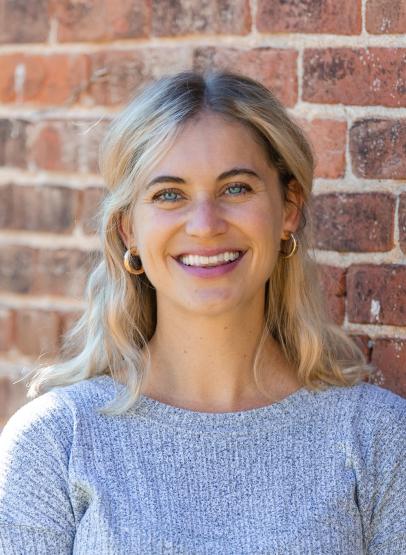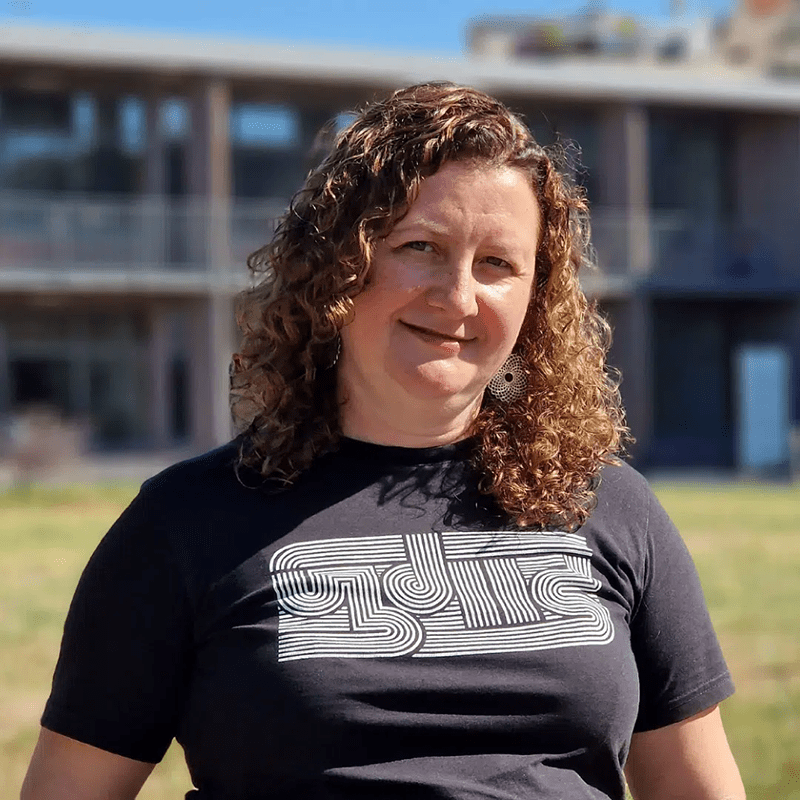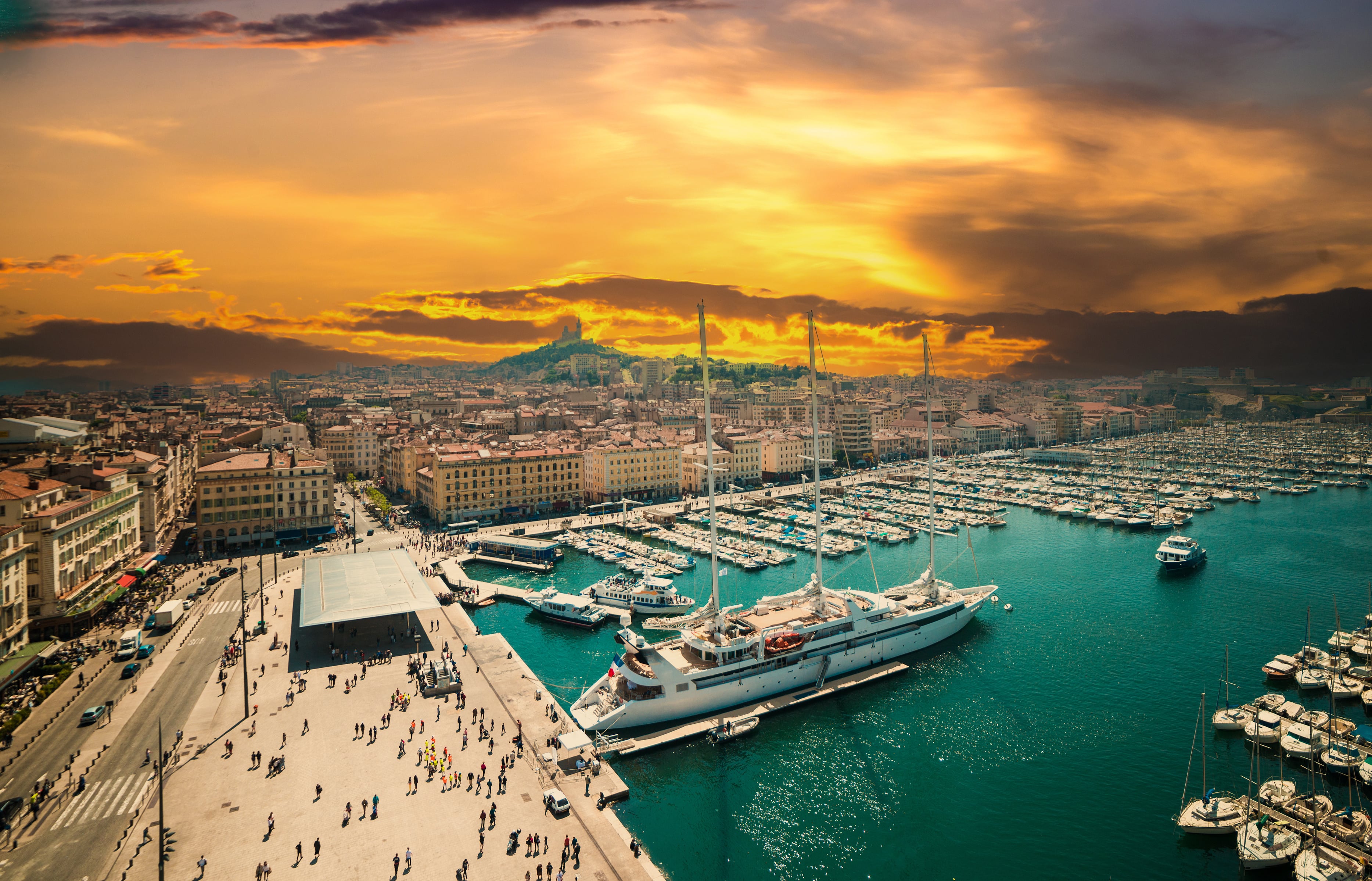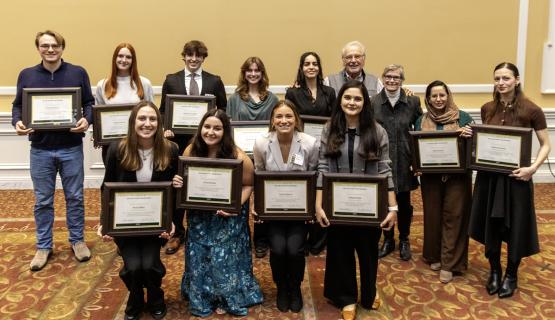
Musaraj, an associate professor of anthropology in the College of Arts and Sciences, found that mass tourism has posed both opportunities and challenges for port cities like Barcelona and Marseille. She conducted her latest study during a 2023 residency at Iméra, the Institute for Advanced Studies of Aix-Marseille University.
“These are both cities that, at least in theory, claim to welcome migrants and refugees, unlike other cities in Europe,” Musaraj said.
Musaraj’s research focuses on understanding the changes happening in Barcelona and Marseille through ethnography, a way researchers learn about different cultures by watching and talking to people in their everyday lives.
Her project, titled “Mediterranean Dreaming: Migration and Tourism in Maritime Cities,” examines the transformation of these cities in the wake of rising migration, mass tourism, and grassroots protests asserting a “right to the city.”
“The idea of the ‘right to the city’ is that the city is for everybody, that everyone should have access to it,” Musaraj said. “It refers to people’s claim that they have a right to, for instance, public space, or public transportation or affordable housing.

Smoki Musaraj, Ph.D., at Iméra, the Institute for Advanced Study at Aix-Marseille University. Photo by Timothée Andonian / Iméra.
During her research in Marseille, Musaraj witnessed many public events and gatherings that claimed the “right to the city.”
Musaraj explains that tourism was initially seen as an economic solution in these cities. Both Barcelona and Marseille were experiencing periods of decline until global events like the 1992 Summer Olympics in Barcelona and the celebration of Marseille as the European Capital of Culture in 2013 opened the way to transforming these cities into prominent tourist destinations.
However, while tourism revitalized the economies of these Maritime cities, it also placed a strain on local residents. Musaraj says the “Airbnb economy” takes part of the blame.
“You have this rise of tourism economy there that converges with other global forces, like the Airbnb phenomenon,” she said. “All of these forces are creating conditions in the city for housing speculation, the raising of prices, and evictions that are happening because people can’t pay their rent.”
Musaraj adds that Barcelona was one of the first cities to experience massive protests against tourism after the financial crisis in 2008, a time when many residents—primarily those in migrant or low-income neighborhoods—were either evicted because they could not pay their rent or forced out of their neighborhoods as rent became more expensive.
Since then, foreign investment firms have bought thousands of homes in Barcelona and have evicted residents unable to pay rent, according to The New York Times.
All of these forces are creating conditions in the city for housing speculation, the raising of prices, and evictions that are happening because people can’t pay their rent.
“Airbnb started as [a couch surfing platform], and it was free [or very cheap] in the beginning … Then people started monetizing it,” Musaraj said. “It's turned into another form of hotel business, but it doesn't have a lot of regulation.”
Musaraj, whose background is in economic and legal anthropology, has conducted ethnographic research in Albania for over a decade. She also teaches a Mediterranean Studies course in the Department of Sociology and Anthropology.
Iméra awarded her a research fellowship in September 2023 due to her project’s unique focus on the future of Mediterranean cities.
Tourism is also transforming urban life in these cities. In December, Musaraj hosted a seminar at Iméra with other experts to discuss how these cities are dealing with challenges posed by mass tourism and migration.
While speaking with these cities’ residents, Musaraj found that many felt disconnected from their communities. In Barcelona, some said they no longer recognized their city.
“Some of the public spaces like the famous avenue called La Rambla that used to be frequented mostly by locals has actually become kind of invaded by tourists,” Musaraj said. “They lament that this is not their city anymore. You don't see people that you recognize anymore; it's all this transient population.”
In some cases, these cities have attempted to curb the harmful effects of mass tourism. For instance, officials in Barcelona announced in September their plans to raise the city’s tourist tax over the next two years.
“They’re trying to manage tourism through legislation, but there are also cases where people complain that the city doesn’t do enough,” Musaraj said, referencing efforts made by local authorities and Barcelona’s former mayor, Ada Colau.
She added that city officials in Marseille plan to regulate the Airbnb economy after the upcoming summer Olympics, which is expected to bring a massive wave of tourists.
In the future, Musaraj hopes to continue her research into Barcelona and Marseille with the possibility of exploring other Mediterranean cities facing mass tourism and migration.
Musaraj is currently writing a chapter for an edited volume detailing her findings from both cities. Her goal is to look at patterns of governance and grassroots movements across cities in the region, rather than drawing generalizations about the Mediterranean space or culture.
“In anthropology and Mediterranean studies, there has been a break from thinking about the Mediterranean as universal,” Musaraj said. “I’m not looking at unifying identities that are across the space but looking at movements, looking at hybrid identities and looking at some of the issues that are shared across the board.”



